What the Greek Knew About Justice
Ancient Athenians developed a remarkable judiciary. Trials were conducted by a large body of ordinary citizens. On trial days, those wishing to serve as jurors went to the courthouse where a sophisticated jury selection procedure took place.
Citizens inserted their pinakion (a bronze or wood ID token) into a slot of an allotment machine called kleroterion. After all citizens had inserted their pinakion, an official threw white and black icosahedron (20 faces) dice in a tube affixed vertically on a side of the kleroterion. The tube stopped at the bottom and held the dice in the random order in which they entered. Dice were then released one at a time. Candidates having a black dice on their row were dismissed for the day. Candidates with a white dice were drawn for paid jury duty (Boegehold 1995). Hence, the kleroterion was an ancient randomization device that guaranteed transparency in jury selection.
About 25 centuries ago, Athenians knew that courts could work as a peer-to-peer system without turning into mob justice, provided three conditions were met: jury duty was voluntary, jury duty was paid, jury selection was done by sortition (kleros).
In the Internet age, as national legal infrastructures become unable to cope with an increasing complexity, ideas from Ancient Greek courts may help build a new, global and real time adjudication technology.
A pinakion. This plaque made in bronce or wood was the citizen ID in Ancient Athens.
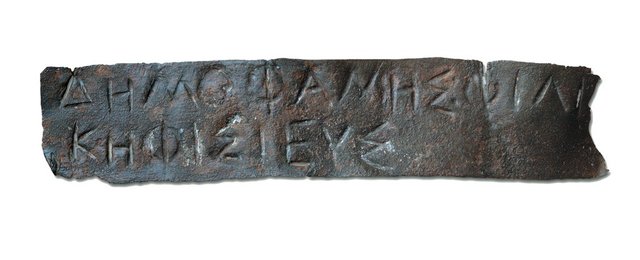
Fuente
The Kleroterion. The allotment machine used in Ancient Athens to randomly select jurors for trials.
Icosahedron Dice. Made of 20 equilateral triangles, it was used for jury selection.
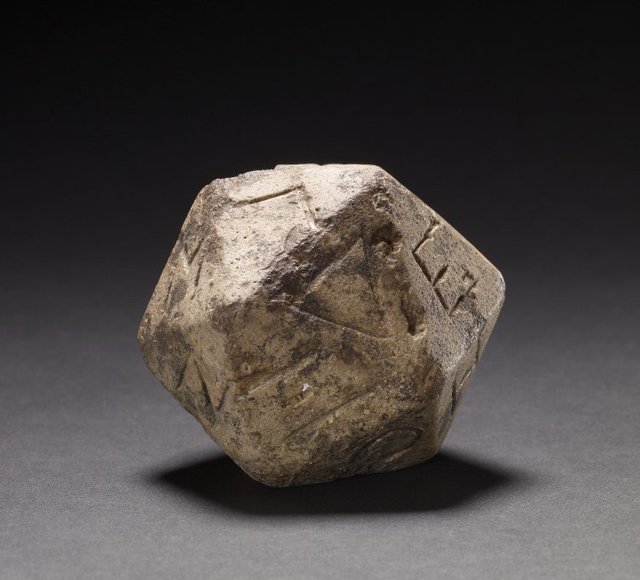
Fuente
INTRODUCTION:
The world is experiencing an accelerated pace of globalization and digitalization. More and more online transactions are taking place between people around the world and as more of the commerce and social interactions move online, so do the conflicts between the parties. Existing dispute resolution technologies are too slow, too expensive and unreliable for an online world in real time. The ability to reach real decisions is the fundamental characteristic of a judicial system, Kleros solves this problem by creating an arbitration process that can be easily added to any intelligent contract, taking advantage of the crowdsourcing and blockchain technology to build a resolution protocol. fast, transparent and decentralized disputes.
Fuente
KLEROS:
It is a system of justice based on blockchain within Greek democracy and is introducing a layer of Internet dispute resolution protocol with an application developed on the Ethereum platform that acts as a decentralized third party company whose main duty is to arbitrate disputes between several contracts from the simplest to the most complex. The system is based on the theoretical incentives of the games so that the jurors direct the cases correctly. The result is a dispute resolution system that makes the final judgments are applied by intelligent contracts in a decentralized manner.
How kleros will change the way in which people and companies handle disputes:
The main thing is the change against the fight of scams and abuse in the distribution of negotiations in electronic commerce, finance, commerce, travel and many other fields, these distribution events are key to developing the infrastructure of the decentralized Internet. However, as is often the case with new economic practices, there have been situations of abuse, including companies that disappear with the sponsor's money. Taking into account existing dispute resolution technologies, which are very expensive and unreliable, the Kleros team has presented a fast, transparent and economical dispute resolution mechanism that is completely reliable. The system ensures that smart contracts are executed automatically and does not include judgments that are out of the chain in the system are electronic commerce, transport, insurance and blocks. Under this voluntary subscription system, the creators of the contract choose the number of juries they need and the type of court that will decide their case. The creators of the contract will obtain multiple cutting options to choose from. Some of the existing judicial arborescenses. Jurors will have options available to vote based on the selection of court arborescence.
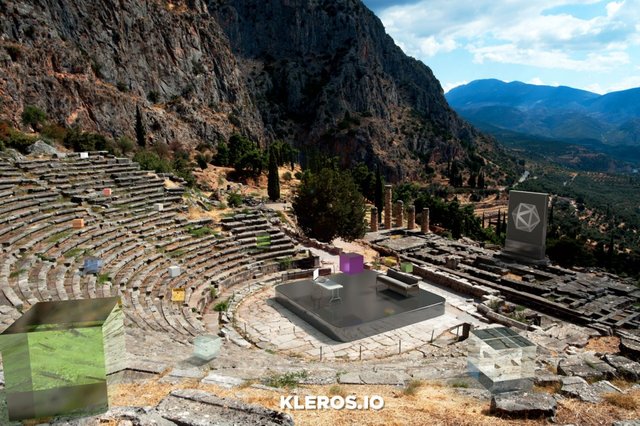
Fuente
How can Kleros help reduce the costs associated with resolving disputes? How can this benefit small businesses?
Kleros is a multipurpose protocol that can be used to adjudicate a wide variety of claims and disputes transparently, efficiently and quickly, in less time and lesser costs; on the contrary, normal justice would take much longer to solve cases, meaning higher costs for the companies. Some of them may work in the near future, while others are likely to work in the long term. Kleros has devised a way to solve the problem of trust in a situation like independent work. Any place where there may be a dispute over a blockchain-based transaction is somewhere that Kleros can apply. As we adopt decentralized platforms in our lives more and more, Kleros can be the service we turn to when things do not go according to plan.
How can Kleros benefit large corporations that handle many disputes (think eBay, Etsy, Amazon, etc.)? How does Kleros guarantee equality through its incentive system?
The global workplace is changing the relationships between employers and employees to engage in distant, cross-border and flexible work done by independent professionals. Large corporations like Amazon, Etsy, Ebay and others, have a leading platform in the economy and generate many disputes but pay attention to a dispute resolution service, Kleros offers the arbitration system to help an important solution for disputes that arise in these large global platforms.
Doges en juicio
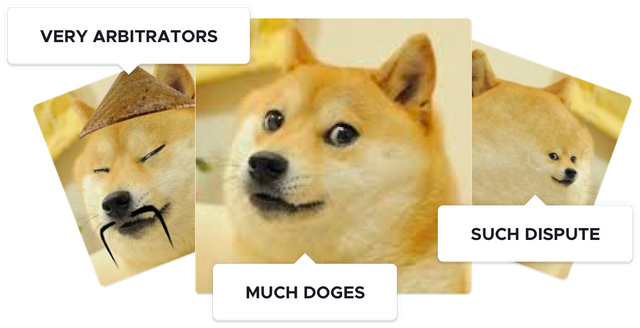
Fuente
The Doge List is Kleros' majestic curated list experiment.
The Doge List is a fun way of creating disputes to test our arbitrating technology.
The rules of the game are simple. Anyone can submit images to the gallery by clicking on the "Submit Doge" button on the top right.
CONCLUSION:
The cryptocurrencies are giving many the possibility of having their first bank account to send and receive money in a safe way. Cryptocurrencies are helping millions achieve inclusion. Kleros will do the same in access to justice by allowing arbitration in a large number of
Contracts that are too expensive to continue in court, motivated to be an open source project that was created with the aim of being a decentralized and autonomous organization that can offer a fast, affordable and transparent justice. The company will use blockchain and crowdsourcing technology to evaluate complex tests and solve legal problems quickly and efficiently.
Obviously, Kleros does not have jurisdiction over the "real" law, but the program can be used to regulate many cyberspaces without the need for official government intervention, which is generally slow and it would take too much to solve the problems because it already has a lot of problems of real life to solve.
This allows a space for Kleros to be used in decentralized platforms to help in the evaluation of disputes between users that would normally be ignored by the dominant justice. All relevant information will be secured, a user's court will be chosen at random and they will cast their votes on the evidence. The decision will be applied through an intelligent contract. Kleros will be an efficient way to deal with these problems in a clean and fast way.
EQUIPO DE KLERO
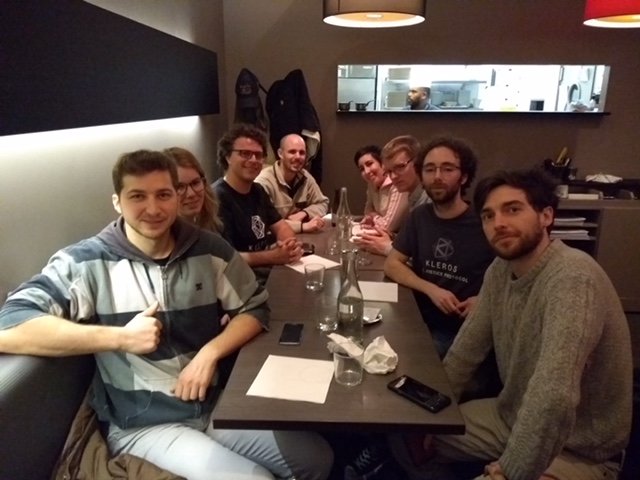
Fuente
kleros2018
klerostwitter
@Kleros_io
Thank you for Read me, Upvote Resteem and Follow @maxili63








This post has been submitted for the @OriginalWorks Sponsored Writing Contest!
You can also follow @contestbot to be notified of future contests!